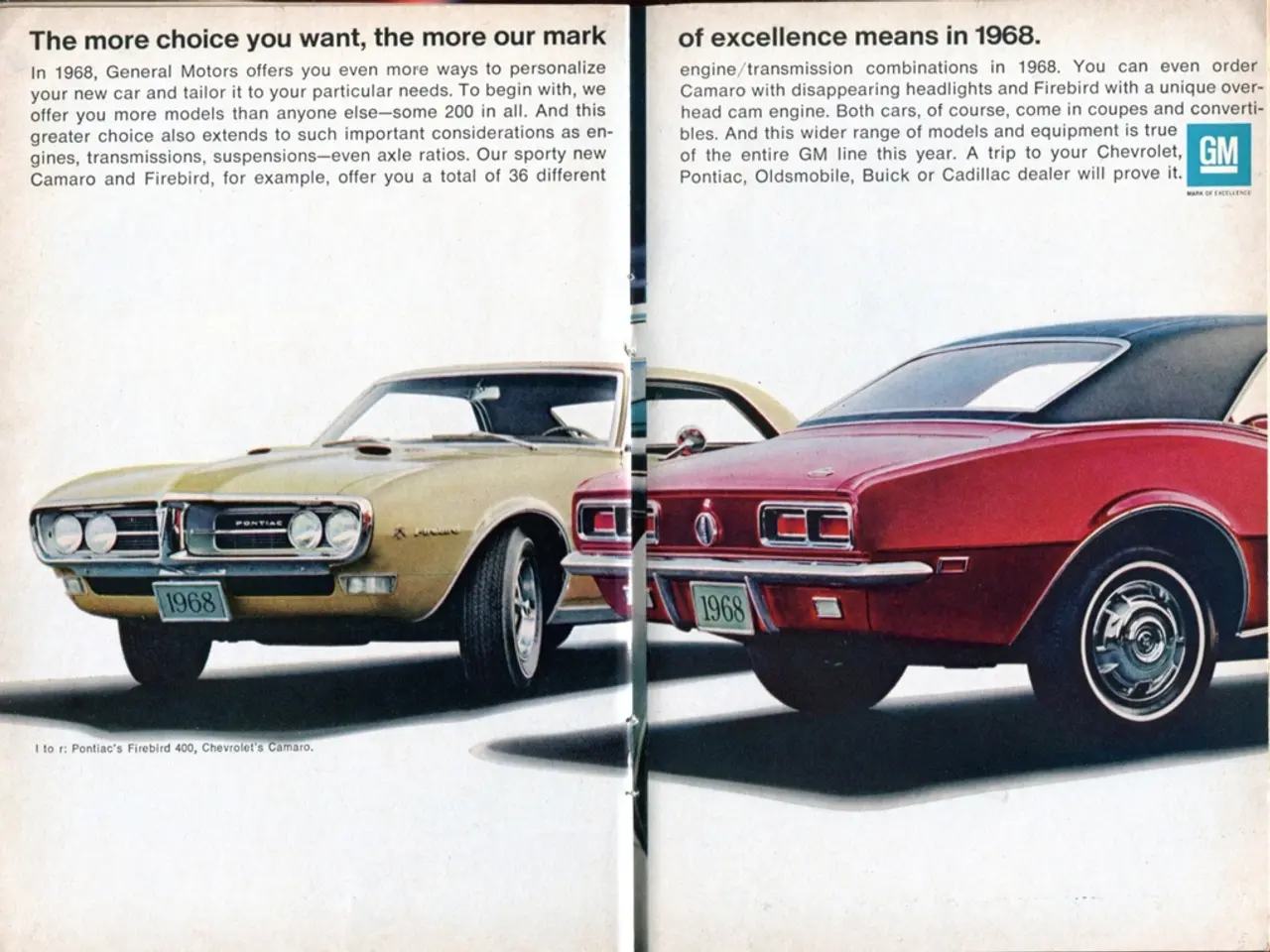ZDK issues caution against one-sided tech regulation, advocating for openness to prevent industry exhaustion
ZDK Calls for Balanced Climate Policies in European Automotive Industry
The Central Association of the German Automobile Industry (ZDK) has made a series of demands for the European automotive industry, focusing on a balanced approach to climate protection and affordable mobility.
Thomas Peckruhn, the president of ZDK, has warned that the transformation of the industry could stall without considering consumers and Small and Medium Enterprises (SMEs). He has also expressed support for the EU's plans to expand the market for electric vehicles, but emphasized the need to put the end consumer at the centre of the transformation.
One of the key demands made by the ZDK is an increase in the Greenhouse Gas (GHG) quota to 40% by 2030 in the European automotive industry. The association also calls for binding minimum quotas for renewable fuels, with a goal of 5% by 2030 and 24% by 2040.
The ZDK advocates for a technology-open approach from the EU Commission in the regulation of the European automotive industry. Vehicles with climate-neutral fuels like e-fuels or biofuels must continue to be allowed under this proposed regulation, according to the ZDK.
The association argues that the existing fleet of internal combustion engines should be integrated into climate protection in the short term. A replacement of the blanket ban on internal combustion engines from 2035 with a technology-open regulation is also demanded by the ZDK.
Climate policy, according to the ZDK, should not be limited to exhaust values alone. The overall balance over the lifecycle is decisive, the association claims. The ZDK criticizes the BMWi (Federal Ministry for Economic Affairs and Energy) for ignoring the consequences for consumers in their CO2 measures.
The ZDK has also presented demands for affordable mobility in the European automotive industry. The association sees stagnation in private and commercial registrations of electric vehicles, despite affordable models.
The European automotive industry, with its jobs and value creation, is a central pillar of the economy, according to the ZDK. The association demands incentives for e-fuels in the context of the European automotive industry.
Despite the provided search results not containing information about the specific governmental agencies criticized by the ZDK regarding CO2 measurement regulations or their statements on these regulations, the ZDK has expressed its concerns about the planned regulation by the EU Commission regarding CO2 fleet limits and the strategic automotive dialogue.
In conclusion, the ZDK has made a series of demands for the European automotive industry, focusing on a balanced approach to climate protection and affordable mobility. The association emphasizes the need to consider consumers and SMEs in the transformation of the industry, and advocates for a technology-open approach from the EU Commission in the regulation of the industry.
Read also:
- Indian Oil Corporation's Panipat Refinery secures India's inaugural ISCC CORSIA accreditation for Sustainable Aviation Fuel production
- Increasing Trend Downthe Globe: A Growing Number of Individuals Opt for Electric Vehicles Over Long Distances
- China is, unlike the United States, embracing technological progress rather than attempting to restrict it.
- Collaboration announced between Ather Energy and the Department for Promotion of Industry and Internal Trade (DPIIT) for the enhancement of electric vehicle (EV) production and the advancement of the clean mobility environment.







